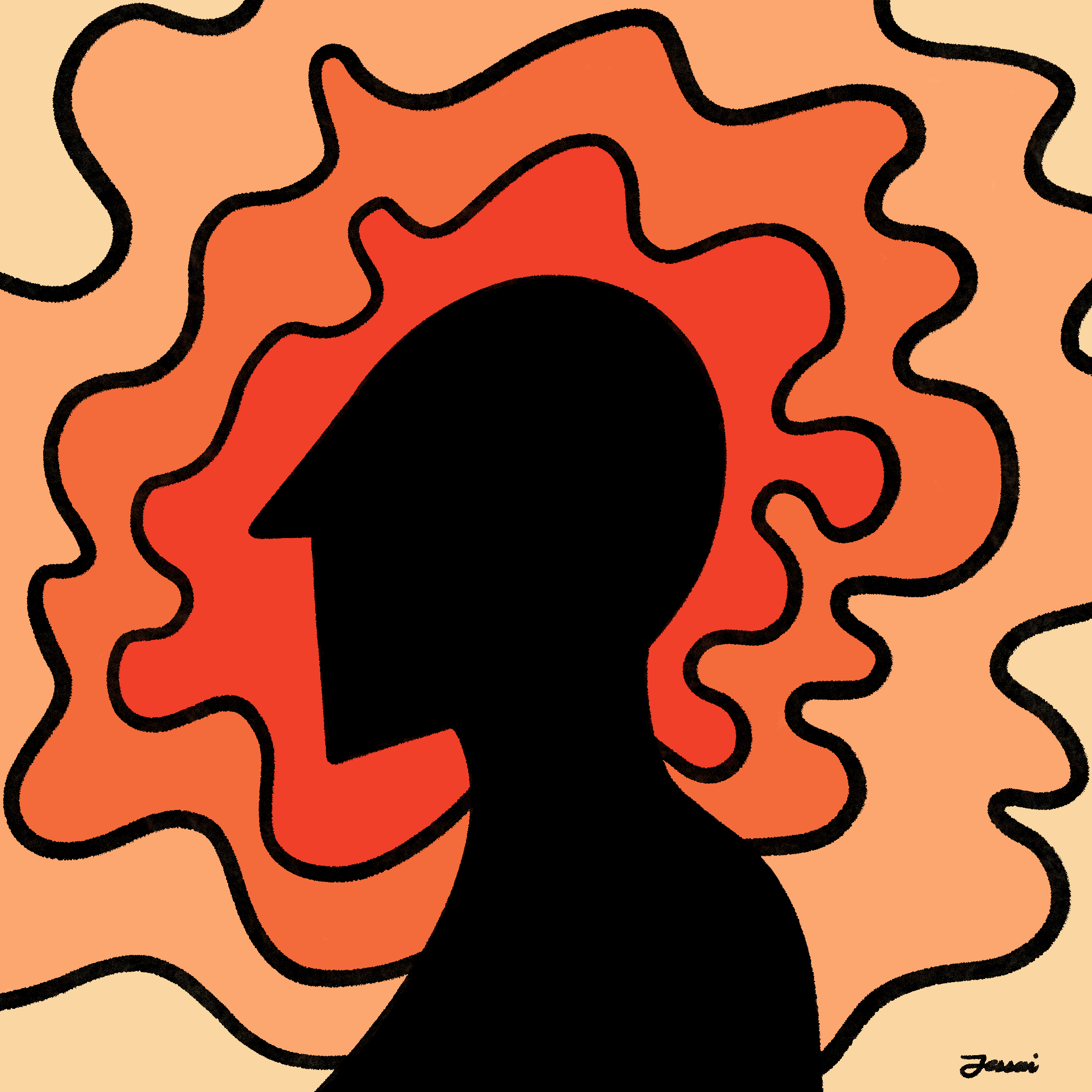Yale researchers unlock secrets through study of long-term effects of COVID-19
Yale researchers expand their work on long COVID in conjunction with Survivor Corps to study how vaccinations are affecting long COVID symptoms.

Jessai Flores
Researchers at the Yale School of Medicine are currently engaged in a year-long study to investigate the long-term effects of COVID-19, colloquially termed “long COVID.”
Symptoms of long COVID include fatigue, shortness of breath, difficulty concentrating, sleep disorders, fevers, anxiety and depression, all of which can persist for months after initially contracting and recovering from COVID-19. In recent months, professors and community members at the School of Medicine have turned their focus towards the condition, according to professor of medicine Harlan Krumholz. A study currently underway aims to track the long-term implications of COVID-19 vaccines on previously infected individuals who continue to suffer from long COVID.
“What we’re trying to do is bring together the best of clinical and epidemiologic science with basic biological science and to then make some kinds of conclusions about what it is that people are experiencing [with long COVID],” Krumholz said. “What are the factors that seem to be associated with better or worse trajectories? And what are the underlying biological factors that seem to be underlying some of these syndromes [with long COVID]?”
Krumholz explained that Yale researchers started their inquiry into long COVID with research conducted in February by Albert Ko, professor of epidemiology at the Yale School of Public Health. Ko started to “develop large scale studies of healthcare workers, and collect both blood and information about [them] from the outset.” The aim of this study was to determine the long-term effects of COVID-19.
For the study, Yale researchers turned to Akiko Iwasaki, professor of immunobiology and molecular, cellular and developmental biology and of epidemiology at the School of Medicine, and also partnered with Survivor Corps, the largest COVID-19 survivor organization in the United States.
“[Our] goal is to try to understand the disease pathogenesis behind long COVID,” Iwasaki said. “And the tool that we’re using is to really leverage the changes in the immune responses that occur after vaccination. [Vaccinations] are therapy or intervention where people have reported significant changes in their symptoms. The vaccines themselves aren’t going to be a cure for the long COVID, but it’s a means for us to learn about how the vaccine might improve somebody’s symptoms. And so we can emulate that better with a more appropriate therapy.”
The study has tested five different hypotheses on why long COVID exists, according to Iwasaki. Among them is the “viral reservoir” hypothesis, in which infectious particles or remnants of the virus persist in the bodies of people afflicted with long COVID. The second is that autoimmune diseases are triggered by COVID-19. The third centers around microbiomes and the balance of good and bad bacteria in the body. The fourth stems from unrepaired tissue damage, and the fifth focuses on the reactivation of previous viruses, like herpes. While there are five distinct hypotheses, Iwasaki explained that the underlying reasons for long COVID might be a combination of these.
According to Diana Berrent, founder of Survivor Corps, she and Iwasaki began to work together to study long COVID in people who had been vaccinated after connecting over social media.
“It started off as a Twitter conversation,” Berrent explained. “The study was eventually launched in the spring and was completed over the summer as a longitudinal study [a study that observes variables over a long period of time]. So, this is an example of citizens and scientists working together to make science go at little warp speed.”
According to Iwasaki, the partnership with Survivor Corps helped facilitate enrollment in the study, since at the time of her February conversation with Berrent the organization already had about 100,000 members who had been infected with COVID-19.
The first stage of the vaccination study concluded this summer. Due to recent impositions of vaccine mandates throughout the U.S., the researchers are expanding upon their existing research by increasing the number of individuals in the study and watching their symptoms through the end of next May.
According to Daisy Massey ’19, clinical research affiliate at the medical school, the research focuses on the patterns of how vaccinations are changing immune systems and affecting long COVID.
“By looking in such detail at the immune system during these immune assays [a procedure that records a response to a given stimulation], the goal is to look for patterns continuously in the people we study and eventually hopefully being able to test hypotheses that we developed together,” Massey told the News. “The stage we’re at right now is we’ve had the first wave of people go through. But with the vaccine mandate, we’re actually coming up with more people who are planning now to get vaccinated so we are starting to come together and do analyses now.”
According to Krumholz, the studies’ larger implications are the development strategies that have the power “to unlock a lot of secrets about what’s causing these problems [with long COVID].”
Survivor Corps was founded in 2021 to bring COVID-19 survivors together.







